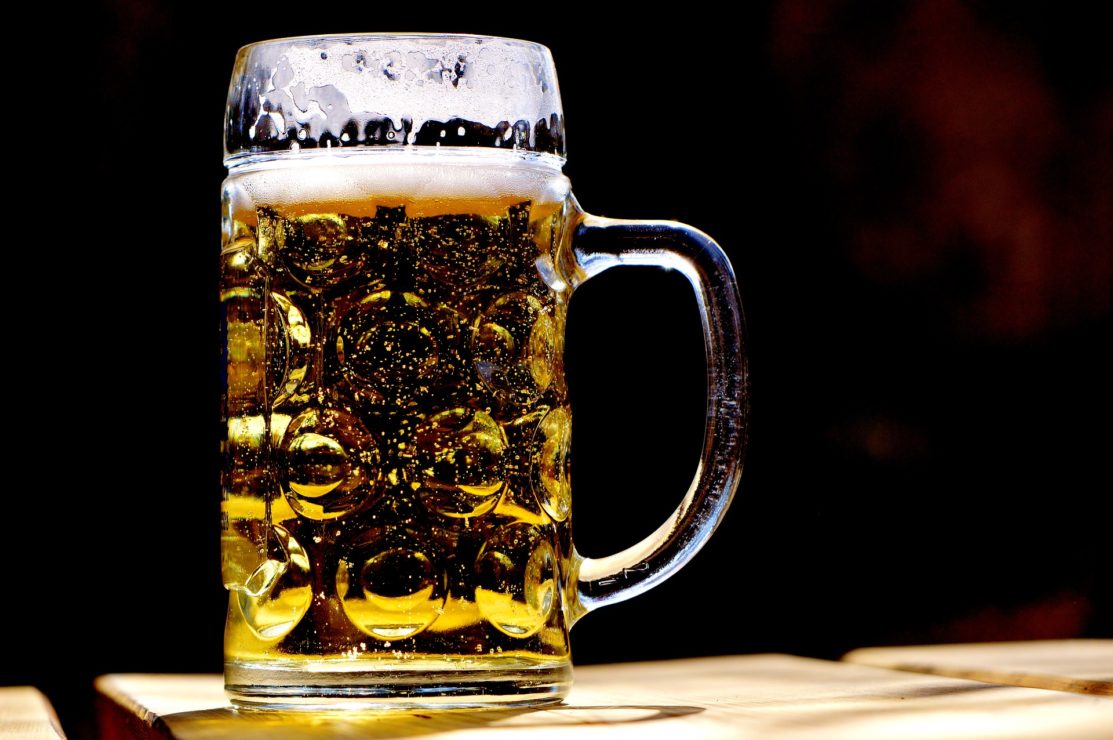
Did you know that beer, scientifically speaking, is a mystery?
The ingredients and recipes might follow a consistent pattern, but the flavour stabilization process — essentially, how long a beer can retain its taste — is not well understood. That’s why, earlier this year, the Phillips Beer Company approached UVic’s microfluidics Elvira Lab to help them answer this question.
These experiments are run by Jaling Kersen, a fourth-year chemistry major, as part of her honours project. Kersen is trying to find a way to prolong the stabilization process in the 78 Kolsch and IPA beers, which will make the flavour last longer both on the shelf and once opened.
To do this, Kersen runs tiny analytical experiments at the microlitre scale, using emulsions created from beer and hop oil to determine the effects of different compounds on the emulsions’ stability. Once a compound is found to not affect the process, it’s discarded and Kersen starts on the next one. “We’re doing a process of elimination right now, but it’s quite extensive because you have to test everything. Nobody knows anything about beer.”
Kersen met up with the Martlet to chat about her honours project, and how doing research has added to her undergraduate experience.
The Martlet: How’d you get involved with this project?
Kersen: I actually had Katherine [Elvira] as a prof. [One day] she came and talked about her research … and we got to go quite in depth with it. I was interested, I thought it was a really cool idea. I wanted to do an honours [and] I had a few options, but I had a basis with Katherine already. I knew her, and she’s a really fantastic prof so I decided to go with her. Then I just jumped on to this project.
Is this the kind of experience that you were hoping to get? Did you think that you would go on to do [honours research]?
No, actually I didn’t. I thought I’d just do my four years and leave … but I really like it. I think that school is so based on tests and you forget that there’s anything else. Lab research shows you the real world isn’t just tests. It’s teaching you how to think through things logically and see what’s going wrong. It’s teaching you problem solving outside of a school based mentality.
How has this project made you a better chemist?
My mindset has really changed. You can see growth, even looking back at my first semester [the conversations are] a lot different. I’m actually bringing up valid scientific points and making [Dr. Elvira] think, which is something I wouldn’t have done when I first started. You can see the connections that are being put together. If you’re in school and you’re memorizing formulas, you make that connection for about a second and then it breaks off once you don’t have that test stress anymore. But here, you make that connection and you improve on it and you learn how to critically think through every step.
Do you think that UVic is a good place to do undergraduate research, or the chemistry department specifically?
I think it’s a really good place. I think that UVic has a really high level of profs too. When I was thinking about joining different research groups there were some really … brilliant profs out there, they have amazing research. And I think it’s really nice that we have a lot of female profs too, there’s a really big option of diversity within the chemistry department. Obviously there could be more, but they’re doing really well I think. UVic has put a really big focus on research which is great, and allows the students to do research at a really high level.
Do you have any advice for someone who wants to get into undergraduate research but doesn’t know how?
I think it’s a really great experience for anybody so I’d encourage a lot of people to try to do it. Just send the profs an email. I had every single prof [that I emailed] reply to me, and they were all … willing to take me even though I had no research experience. If you’re interested in something … there’s a list of profs and what they do. They usually have research pages that explain it, and you can also talk to [other undergraduate or graduate students] that are in labs. I think there’s a scared majority of people that are like “I don’t really want to go into this because what if I get rejected? What if I’m not good enough for this?” You shouldn’t think that way. It stops a lot of people from being able to get the best experience at a university that they can.






